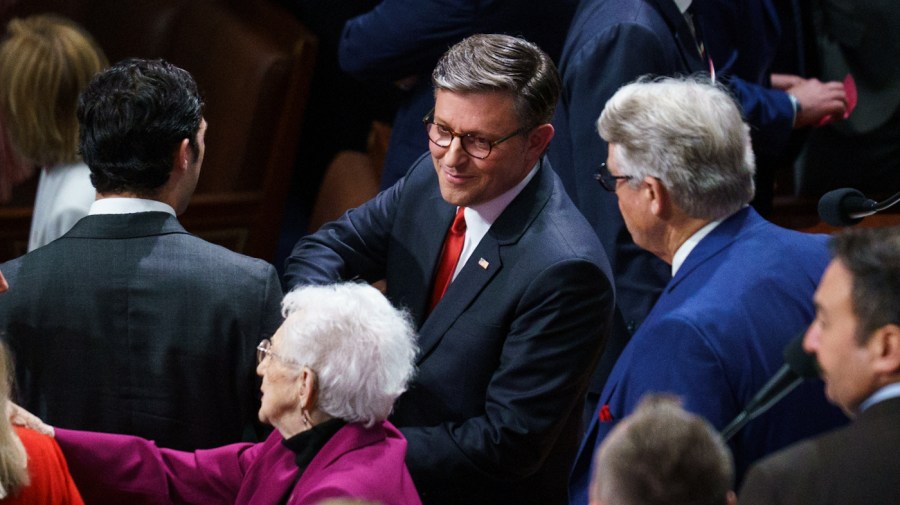In a dramatic culmination of months-long debates and internal party tensions, House Republicans approved a sweeping legislative package on Thursday that encapsulates President Trump’s core domestic priorities. This legislative victory, achieved just before the holiday weekend, marks a significant triumph for Trump, aligning closely with the promises of his 2024 campaign. The bill extends and expands the 2017 tax cuts, intensifies immigration enforcement, increases Pentagon funding, and boosts fossil fuel production.
However, to balance the cost of these expansive measures, the legislation also implements severe cuts to low-income health and nutrition programs. These cuts are projected to decrease federal spending by hundreds of billions of dollars but could leave an estimated 17 million people without health coverage. This aspect of the bill has drawn unanimous opposition from Democrats, who plan to leverage it as a focal point in their midterm campaign strategies.
Trump’s Influence Over the GOP
The passage of this bill highlights Trump’s formidable influence over the Republican Party during his second term. Throughout the legislative process, the bill faced potential derailment from various factions within the GOP. Conservatives criticized it for insufficient spending cuts, moderates objected to Medicaid reductions, and some New York Republicans demanded changes to state and local tax deductions.
Trump’s intervention was pivotal at several critical junctures. Through private meetings, phone calls, and public pressure via his Truth Social platform, he managed to unify most Republicans, overcoming their reservations. This influence was evident when the House initially passed the bill in May by a narrow margin of 215 to 214, and again when Senate conservatives conceded their demands for deeper Medicaid cuts, allowing the bill to pass with Vice President Vance casting the tie-breaking vote.
“It would have never happened without Donald Trump,” stated Rep. Ralph Norman (R-S.C.), underscoring the president’s central role in the bill’s passage.
Speaker Johnson’s Strategic Leadership
Speaker Johnson’s role in navigating the bill through Congress cannot be understated. Known for his adept political maneuvering, Johnson has repeatedly defied expectations. From securing the Speakership on the first ballot to pushing through contentious budget resolutions, his leadership has been instrumental in rallying Republican support for the bill.
Johnson’s ability to bring together a diverse Republican conference, despite their varied concerns, was crucial. He managed to deliver the bill to Trump’s desk a day ahead of the self-imposed July 4 deadline, a feat many had deemed unrealistic.
“The question was how did we get the holdouts to yes? My leadership style is that I try to be a servant leader,” Johnson explained, highlighting his approach to unifying the party.
Conservative Concessions and Campaign Implications
Throughout the debate, conservatives set numerous red lines, particularly concerning the national debt. However, many of these lines were crossed as the bill progressed. Members of the House Freedom Caucus, initially opposed to any legislation increasing the debt, ultimately supported the bill despite its significant fiscal impact.
The bill’s passage shifts the political battle from Washington to the campaign trail. Republicans plan to promote the bill’s popular provisions, such as tax cuts and immigration enforcement, as they campaign for re-election. Conversely, Democrats are poised to criticize the bill’s cuts to Medicaid and food assistance, framing it as detrimental to vulnerable populations.
House Minority Leader Hakeem Jeffries (D-N.Y.) warned, “People will die,” referring to the impact of Medicaid cuts.
Historic Legislative Moments
This legislative session has been marked by historic events. The House set a record for the longest vote, lasting over seven hours, and Jeffries delivered a marathon speech lasting more than eight hours, surpassing previous records. These moments reflect the heightened tensions and stakes surrounding the bill’s passage.
As the political landscape continues to evolve, both parties are gearing up for intense campaigning, with the “big, beautiful bill” at the center of their strategies. The implications of this legislation will undoubtedly shape the upcoming electoral battles and the future of U.S. domestic policy.
